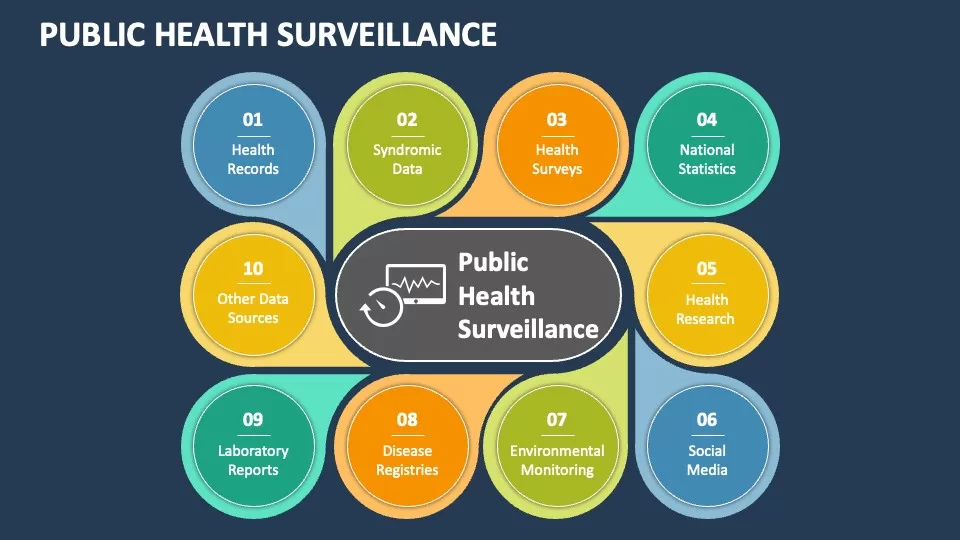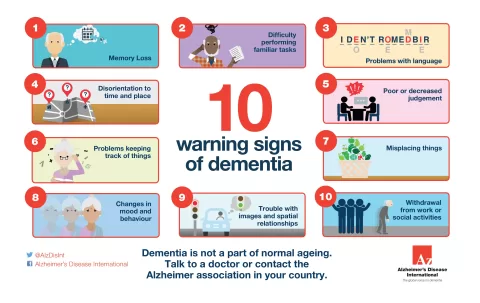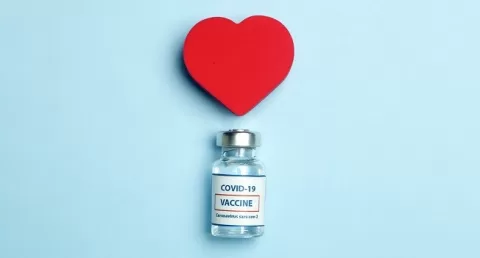Public health surveillance plays a crucial role in monitoring and responding to health trends and outbreaks. This systematic collection and analysis of health data is vital for establishing effective strategies, particularly in line with WHO Guidelines. Recently, the PAHO Regional Program hosted a Bioethics Webinar focusing on the Ethical Issues in Public Health Surveillance. The discussion highlighted prominent challenges faced during surveillance efforts, emphasizing the importance of health equity in public health initiatives. With contributions from esteemed experts, this event aimed to enhance understanding and address ethical considerations vital for improving population health outcomes.
In the realm of health monitoring, systems designed for tracking and analyzing health-related data serve as essential tools for public health professionals. Known alternatively as epidemiological surveillance, this practice not only informs decision-making but also ensures that equitable health interventions are implemented. The recent webinar by PAHO showcased how ethical considerations are intertwined with effective health monitoring practices and aligned with WHO standards. By addressing the ethical dilemmas that arise in this field, such discussions are integral to fostering health equity and enhancing the overall effectiveness of health programs. Such collaborative efforts among experts promise to strengthen the public health infrastructure across regions.
Understanding Public Health Surveillance and Its Ethical Implications
Public Health Surveillance serves as the backbone of health systems worldwide, allowing for monitoring, controlling, and preventing diseases. This systematic collection and analysis of health-related data is essential for making informed decisions on health policies and ensuring the wellbeing of populations. In the recent webinar organized by PAHO’s Regional Program on Bioethics, panelists emphasized the importance of adhering to the WHO Guidelines while conducting surveillance activities. These guidelines provide a framework for ethical considerations, especially when dealing with sensitive data or vulnerable populations.
Ethical Issues in Public Health Surveillance take center stage, as professionals navigate the fine line between collecting necessary data and safeguarding individual rights. The discussions from the bioethics seminar highlighted cases where public health interests conflict with personal privacy. Understanding the ethical ramifications is vital, particularly in contexts where historical abuses have created mistrust in health systems. Engaging local communities in the surveillance process can promote transparency and accountability, aligning with health equity principles.
Key Bioethics Challenges in Health Monitoring
As public health surveillance efforts expand globally, several key bioethics challenges arise. Participants in the PAHO bioethics webinar addressed these challenges, including issues surrounding informed consent and the need for transparency when collecting health data. The balance between acting in the best interest of the population and respecting individual autonomy is critical for fostering trust between health organizations and the communities they serve. The WHO Guidelines offer a crucial reference point for addressing these challenges effectively.
Furthermore, understanding the socio-cultural contexts of communities is paramount in addressing ethical concerns in health monitoring. The webinar stressed that strategies should incorporate local perspectives to tackle health inequities that currently persist in many regions. Engaging with local stakeholders not only enhances trust but also ensures that surveillance practices align with community values while producing actionable data critical for health initiatives.
Integrating WHO Guidelines into Public Health Policy
The integration of WHO Guidelines into public health policy is essential for establishing a framework that not only protects community health but also upholds ethical standards in surveillance activities. PAHO’s Regional Program on Bioethics has been at the forefront of advocating for these guidelines, ensuring that health practitioners are equipped with the necessary knowledge to implement effective strategies. Highlighting these guidelines helps to delineate the responsibilities of health organizations in a manner that aligns with global health practices.
Adapting WHO recommendations into local health frameworks can also empower regional programs, like those from PAHO, to address unique challenges faced by their communities. By customizing guidelines to local ethnic, cultural, and social contexts, authorities can better manage public health surveillance while promoting health equity and minimizing ethical dilemmas. This commitment to ethical practice strengthens the credibility of public health initiatives and fosters collaboration across different sectors.
The Role of PAHO in Promoting Ethical Surveillance Practices
The Pan American Health Organization (PAHO) plays a pivotal role in guiding health authorities on ethical surveillance practices through educational programs such as the Bioethics Webinar. The event highlighted the collaboration of experts who specialize in distinct areas of public health, ensuring that all aspects of surveillance are considered ethically. PAHO’s emphasis on bioethics not only enhances the quality of health data but also promotes ethical standards among professionals in the field.
Moreover, by focusing on moral principles such as justice, beneficence, and respect for autonomy, PAHO encourages health workers to engage in ethical decision-making when it comes to surveillance. This proactive approach ensures that surveillance practices are not just technically sound but also socially responsible, paving the way for sustainable public health outcomes. As health equity becomes increasingly important globally, PAHO’s commitment to ethics in surveillance reflects its dedication to improving health for all individuals.
Addressing Ethical Issues in Health Equity Initiatives
Health equity is a critical aspect of public health which addresses disparities that exist among different populations. The bioethics webinar organized by PAHO underlined the importance of considering Ethical Issues within initiatives aimed at promoting health equity. It is essential that surveillance not only collects data but also reflects the realities of marginalized groups who may face systemic barriers to health access. Engaging these populations in the design and implementation of surveillance strategies can enhance the relevance and effectiveness of health programs.
Moreover, ensuring equitable participation in health surveillance is crucial for fostering a sense of ownership among community members. As highlighted by Dr. Oscar Mujica during the webinar, methods such as participatory data collection can empower individuals and enable them to voice their health concerns. This approach also helps in building trust in public health systems, ultimately leading to more precise and actionable data that benefits everyone, especially those traditionally excluded from health discussions.
Innovative Strategies for Ethical Public Health Surveillance
Innovation in public health surveillance practices is crucial to address the evolving needs of communities. The PAHO bioethics webinar presented a plethora of innovative strategies aimed at enhancing the ethical dimensions of surveillance. By leveraging technology, such as mobile health apps and data analytics, health authorities can collect and analyze health information more effectively while adhering to ethical standards laid out by WHO guidelines. These tools can facilitate real-time data collection, ensuring that communities receive timely interventions while also respecting individual rights.
Furthermore, the incorporation of ethical training programs for public health professionals is vital in fostering a culture of ethical awareness in health surveillance practices. Panelists discussed how empowering health workers with knowledge about ethical guidelines, coupled with hands-on training in community engagement techniques, can significantly improve surveillance outcomes. These innovative strategies not only prioritize ethical considerations but also enhance the efficiency and effectiveness of public health responses to emerging health threats.
Building Trust through Ethical Public Health Practices
Trust is the cornerstone of effective public health initiatives, particularly in surveillance. The recent webinar hosted by PAHO illustrated how ethical practices in surveillance can cultivate deeper trust between public health authorities and communities. By transparently communicating how health data will be used, and by ensuring that ethical standards are observed, public health entities can reduce skepticism and build collaborative relationships. This trust is particularly vital in communities that have historically faced challenges related to health equity.
Building such trust requires consistent engagement with the communities being served. The panelists discussed best practices for fostering community involvement in health surveillance initiatives, such as conducting consultations and addressing community concerns directly. Promoting a two-way dialogue reassures communities that their health matters are a priority, thus integrating their needs into broader health strategies. The emphasis on transparency and accountability not only benefits data collection processes but also enhances overall public health outcomes.
The Importance of Continuous Ethical Training in Public Health
Continuous ethical training for public health professionals is essential to navigate the complexities of health surveillance effectively. During the webinar, experts highlighted the need for ongoing education on ethical guidelines and bioethics principles, especially in light of rapid technological advances. Health workers equipped with the latest training can make informed decisions that protect individuals’ rights while addressing public health needs. By fostering a culture of continuous learning, organizations like PAHO enhance their resilience against ethical dilemmas that may arise during surveillance.
Moreover, this emphasis on ethical competency can lead to improved collaboration and communication within multidisciplinary teams in health. Training fosters a shared understanding of ethical obligations, which in turn influences how different professionals approach their roles in health surveillance. A well-informed workforce is better positioned to engage with communities respectfully, ensuring that public health measures are effective and just, ultimately leading to healthier populations.
Collaboration Across Sectors for Enhanced Surveillance Integrity
Collaboration across different sectors is instrumental in enhancing the integrity and effectiveness of public health surveillance. The PAHO bioethics webinar showcased how partnerships involving various stakeholders can lead to improved health outcomes by integrating multiple perspectives and expertise. Collaborating with organizations, local communities, and international bodies ensures that surveillance practices consider diverse ethical implications while promoting health equity.
In addition, multi-sectoral partnerships can address systemic issues that often impede effective surveillance. By working together, health agencies, governments, and civil society can design comprehensive strategies that overcome barriers and prioritize vulnerable populations. This holistic approach helps ensure that public health surveillance is not only rigorous but also grounded in ethical principles, thereby fostering trust and cooperation from the communities served.
Frequently Asked Questions
What are the WHO Guidelines on Ethical Issues in Public Health Surveillance?
The WHO Guidelines on Ethical Issues in Public Health Surveillance provide a framework for ethical practices in data collection and use in public health. They emphasize respect for individual rights, privacy, and informed consent while balancing the need for effective disease surveillance and public health response.
How does PAHO’s Regional Program address Health Equity in Public Health Surveillance?
PAHO’s Regional Program prioritizes Health Equity by ensuring that public health surveillance systems identify and address disparities in health outcomes. This involves equitable distribution of resources, tailored interventions, and community engagement to improve health outcomes for marginalized populations.
What are some common ethical issues in Public Health Surveillance discussed during the Bioethics Webinar?
The Bioethics Webinar highlighted several ethical issues in Public Health Surveillance, including informed consent, data privacy, potential misuse of surveillance data, and the need for transparency and accountability in surveillance practices.
Who were the panelists at the PAHO Regional Program Bioethics Webinar?
The panelists included Dr. Martha Saboya, Dr. Roberta de Betânia Caixeta, Dr. Lionel Gresh, Dr. Oscar Mujica, and Dr. Carla Saenz, all experts in various areas related to Public Health Surveillance and Bioethics under the PAHO framework.
How can Public Health Surveillance contribute to better health outcomes according to WHO Guidelines?
Public Health Surveillance, when guided by WHO Guidelines, can contribute to better health outcomes by enabling timely detection of health threats, guiding response strategies, and ensuring that interventions are informed by accurate and comprehensive data while upholding ethical standards.
What was the significance of the PAHO Regional Program’s webinar on Bioethics and Public Health Surveillance?
The significance of the PAHO Regional Program’s webinar lies in its role in educating health professionals about WHO Guidelines and ethical considerations in Public Health Surveillance, fostering discussions on addressing challenges, and promoting strategies for ethical practice in public health interventions.
How does the Bioethics Webinar support the implementation of WHO Guidelines in various countries?
The Bioethics Webinar supports the implementation of WHO Guidelines by sharing knowledge and best practices among health professionals globally, addressing common challenges, and ensuring that ethical considerations are central to the development of public health surveillance systems.
What resources are available from PAHO regarding Public Health Surveillance and Bioethics?
PAHO provides various resources on Public Health Surveillance and Bioethics, including the recordings of webinars, guidelines, and educational material available in multiple languages, ensuring accessibility for a diverse audience.
| Key Points | Details |
|---|---|
| Date and Time | September 16, from 12:00 p.m. to 2:00 p.m. (Washington, DC time) |
| Format | Webinar with English-Spanish translation available |
| Organizers | PAHO’s Regional Program on Bioethics |
| Main Topic | WHO Guidelines on Ethical Issues in Public Health Surveillance |
| Challenges Addressed | Prominent challenges in various aspects of surveillance work |
| Panelists | Dr. Martha Saboya, Dr. Roberta de Betânia Caixeta, Dr. Lionel Gresh, Dr. Oscar Mujica, Dr. Carla Saenz |
Summary
Public Health Surveillance is a critical field that requires ethical considerations, as highlighted in PAHO’s recent webinar. This event, focused on the WHO Guidelines, brought together experts to discuss significant challenges in surveillance work and emphasized the importance of ethical practices in managing public health data. Engaging with the community through translations in multiple languages further showcased a commitment to accessibility and inclusivity in health communications. The insights shared by the panelists underline the ongoing need for rigorous ethical frameworks in public health surveillance.
The content provided on this blog (e.g., symptom descriptions, health tips, or general advice) is for informational purposes only and is not a substitute for professional medical advice, diagnosis, or treatment. Always seek the guidance of your physician or other qualified healthcare provider with any questions you may have regarding a medical condition. Never disregard professional medical advice or delay seeking it because of something you have read on this website. If you believe you may have a medical emergency, call your doctor or emergency services immediately. Reliance on any information provided by this blog is solely at your own risk.







